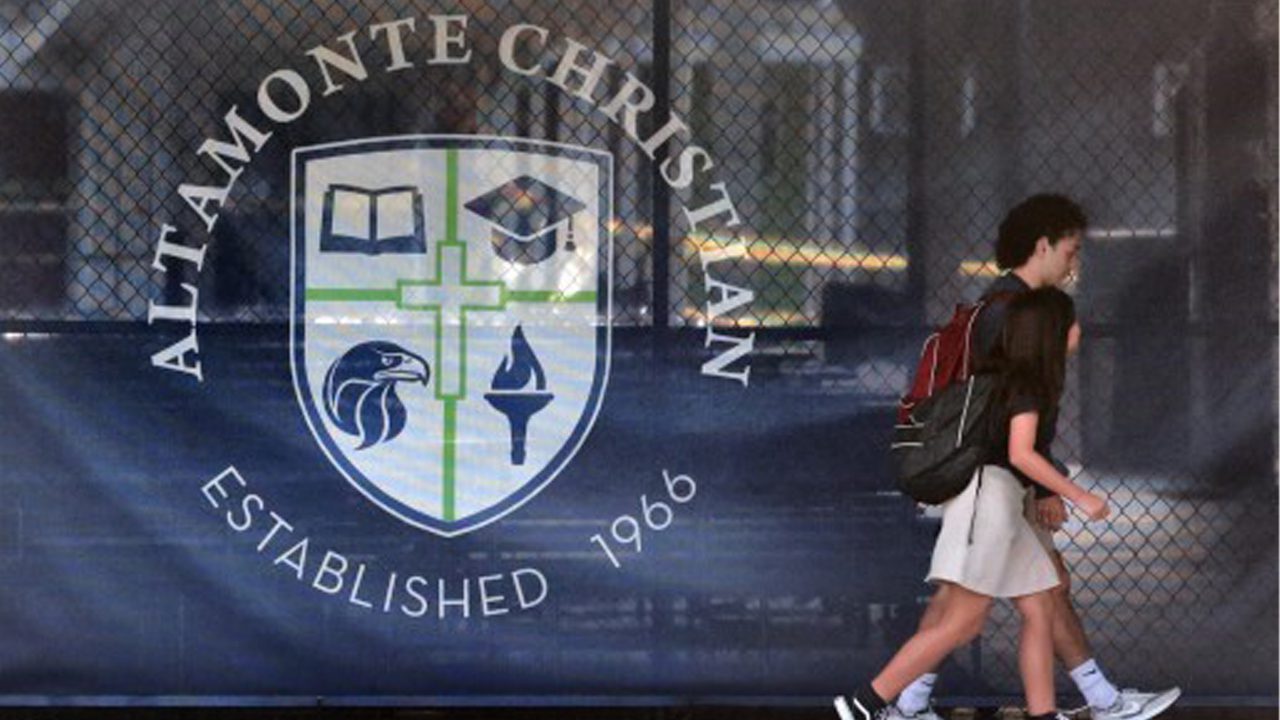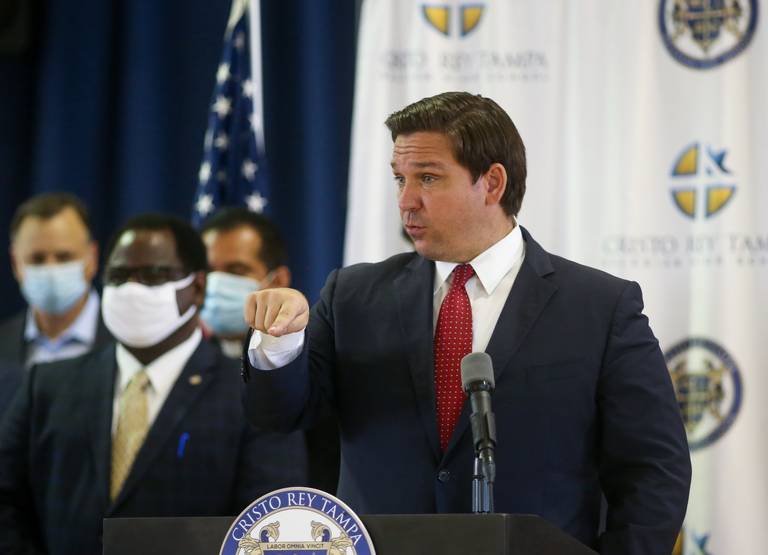
Florida school voucher awards jump 44% after state makes everyone eligible
South Florida Sun Sentinel | By Leslie Postal | August 17, 2023
The number of Florida students awarded school vouchers jumped by more than 117,500 this year, mostly due to a new state law that made all students eligible for scholarship programs once targeted to low-income children.
By Aug. 11, more than 382,000 students had received vouchers for the 2023-24 school year, giving them access to money for private school tuition, homeschooling services or therapies for children with disabilities, according to Step Up For Students, the private group that administers most of Florida’s scholarship programs.
That represents a 44% increase from a year ago when about 264,400 scholarships were awarded by the same date.
The voucher programs that previously served low-income children this year received far more applications, and they awarded far more scholarships than they did in 2022. Those scholarship awards jumped by more than 12,000 in Broward County, for example, and by more than 6,400 in Orange County, Step Up’s data showed.
The scholarships are worth an average of about $7,800 a year, though actual amounts vary by student’s grade level and by county. The voucher programs are still required to prioritize giving awards to children whose families earn no more than 185% of the federal poverty limit, or a family of four earning $55,000 a year or less. But everyone, whether middle class or very rich, is now eligible to apply.
Step Up is collecting and will release family-income data, but it is not yet available, said Scott Kent, a spokesman for the organization, in an email.
That data will show how many families who were awarded scholarships this year would not have been eligible prior to the passage of the new legislation (HB 1). Step Up prioritized applications by income group through mid-June, he said.
Not every child awarded a voucher ends up using one, he added, so the number of funded scholarships likely will be smaller than the number awarded.
The hike in scholarships was expected after Gov. Ron DeSantis in March signed the new law, which he called a “major game changer” that would boost educational options for families. The law was celebrated by GOP leaders, school choice advocates and parents already paying for private school who are now eligible for state assistance.
They argued families who never opted for free public schools still pay school taxes and so it makes sense to provide them school vouchers to help offset private school costs.
This week, the Archdiocese of Miami credited the new law with boosting enrollment at its Catholic schools and creating waitlists at some campuses. “Step Up Blew Up,” it wrote on its website, like many, using Step Up as shorthand for Florida’s school scholarship programs.
The archdiocese noted that at one Catholic school in Coral Gables, with about 900 students, the number of families receiving state scholarships leapt from 160 last year to more than 560 this year.
But the new law also faces fierce critics. They worry its price tag — one estimate says it will cost the state $4 billion in its first years — will devastate public school budgets and dislike that private schools that take vouchers face little regulation from the state.
“This is the design, to undermine our public schools,” said Karen Castor Dentel, an Orange County School Board member during a board budget discussion earlier this month.
“The public dollars that they have given to private schools, those are our public school dollars that they are now giving to people to go to a private school,” Castor Dentel said. “Those are public school dollars they are now handling over to unaccountable private schools where you don’t have to have a qualified teacher.”
Private schools that take state vouchers are mostly religious schools, and they make their own decisions as far as teacher qualifications, curriculum and facilities. Some have hired teachers without college degrees and employees with criminal convictions, set up in rundown buildings and offered curriculum outside mainstream academics, the Orlando Sentinel has reported.
Providing scholarships to families whose children already were in private school or were being homeschooled “is absolutely taking away from public school dollars,” said Norin Dollard, a senior policy analyst with the Florida Policy Institute, a progressive think tank that warned back in February that the new law would cost the state billions of dollars.
Dollard said the state earmarked about $3.3 billion for all its scholarship programs this school year and likely will run through that by the end of October, given the number of awards announced so far.
Doug Tuthill, Step Up’s president, wrote on Twitter in late July that his organization was getting about 2,000 applications a day. Parents can continue to apply for scholarships even after the school year is underway.
Across Central Florida, the number of scholarships awarded to students this year is up, with an increase of more than 3,300 in Seminole County, more than 1,500 in Lake County and nearly 1,000 in Osceola County.
The same is true across the state. Scholarship awards are up by more than 7,600 in Palm Beach County and by more than 5,300 in Duval County, for example.
The bulk of the increase in scholarship awards this year, nearly 98,000, came from the two scholarship programs that once had income limits. But the scholarship program that serves children with disabilities also grew, with nearly 20,000 more awards this year than last, according to Step Up data.
In Orange County Public Schools, administrators said they aren’t yet sure of the impact of scholarships on this year’s budget, in part because they do not yet know how many of the vouchers are going to students who were in public schools last year and how many are going to those who never were OCPS students. School budgets are based on student enrollment.
But they are worried about the voucher expansion means in the years ahead for Florida’s public education budget as scholarships for private schools increase.
“What Jeb Bush started out as a small program has turned into just completely funding private education,” said Teresa Jacobs, the board’s chair, at the board’s budget meeting.
Florida’s first voucher program, which Bush ushered in when he was governor to help children at F-rated public schools, served fewer than 1,000 students.



